Negotiation is a fundamental skill for sales professionals. No matter what products or services you are selling, you need to be an effective negotiator to win deals.
So why is it that so many sales teams do everything right up until it’s time to close the deal and then struggle in the negotiation phase? There are several reasons.
Why Salespeople Struggle with Negotiations
One of the biggest reasons salespeople struggle during the negotiation phase is that buyers are often better at negotiating. They’ve learned skills over time that have helped them squeeze more out of a deal, especially if they are professional buyers whose job is procurement. Buyers may also have more knowledge. If they receive proposals from other companies, they know market prices and options that are available. It gives buyers leverage.
For salespeople, especially those working on straight commission, many don’t get paid unless they make the sale. They have a personal interest in getting a deal done, so they are more inclined to negotiate poorly to avoid losing the sale. They may worry that pushing back against requests can take money out of their pocket.
There’s also less focus on sales training when it comes to negotiating than other aspects of the sale process. Yet, it’s one of the most important things salespeople do.
So, how do you improve your sales-specific negotiation skills? Start by creating win-win negotiations.
What Is a Win-Win Negotiation?
A win-win is about you and your customer getting maximum value out of a deal. It’s not about a number, or how much money you can take off the table. In a win-win, it’s when you walk away from a negotiation and feel that the relationship has improved as a result. It’s about building a long-term relationship through understanding a client’s concerns and finding a solution that works for both sides.
To be successful in selling, you need to build and nurture relationships over time. Every sale is an opportunity to build more meaningful relationships. By focusing on the client’s needs and providing them with the solutions they need to make it work, you’re positioning yourself as a solution provider rather than a salesperson.

Sometimes what they need is a lower price or additional services. When you can negotiate these items to find a mutual gain for both parties, that’s a win for everyone. When both parties benefit, it sets the stage for long-term relationships.
Improving Your Negotiation Skills and Improving Your Relationships
The good news is that salespeople can improve their negotiating skills and create more win-win long term solutions by learning a few key steps.
Understanding Value
Before you can ever sell a customer, you need to have a firm grasp of the value of the solution you are offering. Too many salespeople discount the value and, therefore, discount the price. You need to believe in what you’re selling and be convinced your customer will benefit from what you’re selling.
Know Your Limitations
Before you begin negotiations, you need to make sure you know how much discretion you have. A 10% discount may seem like a reasonable concession until you get back to the office and have to turn the order into your sales manager.
Make sure you have a firm understanding of where you can negotiate and what truly is non-negotiable. If you have to pause a deal to get permission, it can undermine your authority and make a customer question whether they are negotiating with the right person.
Active Listening
Salespeople are paid to talk and convince. Sometimes, they forget to listen. They may be focused on their next question or approach rather than practicing active listening skills. Yet, active listening is key to better negotiations.
When you are attuned to what the customer is saying, the nonverbal signals they are sending, what they are not saying, you can better refine your approach.

Active listening requires you to:
- Pay close attention to what’s being said
- Withholding judgment
- Reflecting on what you heard
- Clarifying to ensure you understand the concern
- Summarising and sharing
Active listening is a critical skill for sales teams to master to uncover objections and negotiate. Until you narrow down objectives and overcome them individually, it’s hard to close a deal.
Patience
Patience is an important and valuable tool when negotiating. It takes time to build trust in a relationship and it’s way too easy to want to move negotiations ahead to the next stage before you’ve built that trust. That’s why creating a win-win negotiation is so important.
It shows you’re listening and trying to work with your customers to come to an agreement that benefits both of you. It’s how you build trust. Once you’ve set the foundation for trust, everything gets easier. For example, when you haven’t built that foundation, there’s a low-trust relationship. You need to be very precise in what you say and how you approach things to avoid miscommunication. In a high-trust relationship, you can talk more openly without worrying about hurting the relationship.
Self-Control
Dealing with customers can be frustrating and unpredictable. The best negotiators can self-regulate their emotions even if customers don’t. Getting upset, angry, or appearing desperate can hurt your chance of getting a win-win agreement and put you at a long-term disadvantage for future sales.
The best negotiators are almost emotionless in the way they work through things to forge an agreement. They stay in control of themselves and work through concerns logically, pleasantly, and professionally.
Dealing with Price Objections
Too often, price becomes the negotiation tactic that salespeople choose, but it’s rarely the real objection to a sale. If the customer truly believes that what you’re selling will solve their problem and produce the results you say, it’s not about price.
Most often, it’s one of two things: trust or value.
Either the customer hasn’t yet been convinced that your product or service will deliver what you’re promising, or they don’t believe they are getting a value equal to their investment. In either case, you’ve got some work to do to uncover the real objective and provide the proof they need to overcome their concerns.

When you negotiate strictly on price, you are setting the tone for your relationship by saying you are always willing to discuss price reductions as part of the negotiation process. Even if this is true, clients can quickly assume you are always trying to overcharge them or that you will always reduce your price. This, in turn, diminishes the value proposition.
Negotiation tactics about the price for a win-win situation call for you to probe more deeply to uncover the customer’s real objection. Rather than discount the price, could you increase the value?
If there really is a cap on the price a customer can pay for your goods or services, try to reduce the price where you can by restructuring or removing items. For example, if they are unable to pay the price you are asking, can you reduce the price but eliminate free shipping? Maybe you can add access to your on-demand video training library at no cost or ask for an upfront payment in exchange for a price reduction.
These negotiation techniques establish value and set the agenda for future negotiations. It also creates greater transparency with the customer and demonstrates you’re not artificially inflating the price so you can offer a discount upon request.
Saying Yes Too Fast
Another mistake salespeople make is saying yes too quickly to specific concerns without taking the time to look at a deal in totality.
Negotiations often go back and forth. Some ideas that are proposed may be accepted while others get shot down. However, when you are negotiating multiple items, they all have an impact on other items. For example, if the only objection is price, you can probe to uncover the real concern. Maybe you can offer progress payments or offer a discount for prepaying.
However, if multiple items are outstanding in the negotiation, you shouldn’t make concessions in one area until you know all the concerns. It’s better to lay everything out on the table and then approach them as a package. A reasonable give and take where both sides get something out of the discussion leads to better deals.
If possible, you want to extract some value for every concession you make. This keeps you on equal footing and lays the groundwork for a mutually beneficial relationship.
Be Prepared to Walk Away
Sometimes, customers will ask for unreasonable concessions or want a discount that becomes unprofitable. When this happens, salespeople need to be prepared to walk away from the deal. The customer clearly doesn’t see the value in your offering. While it’s worth the effort to try to overcome objections and reinforce the value, sometimes there’s no win-win scenario and it’s better to invest your time elsewhere.
Get Sales Training for Better Negotiation Skills
Like any other skill, negotiation skills can be learned and get better with practice and experience. Sales training can help your sales team learn the skills they need to create win-win negotiations.
At Elevate Corporate Training, we create customised sales training to fit your unique business needs and drive business success.
A sample training on negotiation skills might include:
- The difference between sales and negotiation and why it matters
- How to create additional value
- Developing a negotiation strategy
- “Non-Positional Negotiation”
- Understanding the client’s position
- Successful negotiation outcomes
- How negotiation nurtures a relationship
We can help train your sales team and develop strategies for nurturing interpersonal relationships for long-term success. For more information, contact Elevate Corporate Training today.





